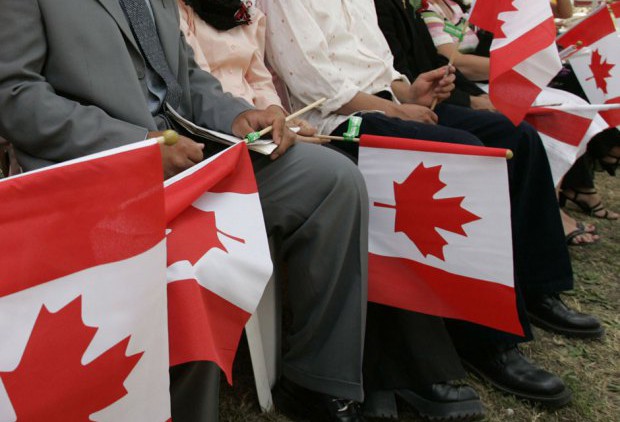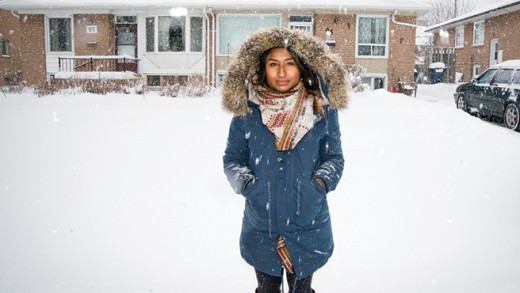As Canadians approach an election year in 2015, one of the critical issues of concern and debate centers on our country’s immigration and refugee policies. Over the past several years we have witnessed the Conservative government make unprecedented changes in the refugee determination system, migrant workers programs, and caregiver program, that have drastically impacted refugees, migrant workers, caregivers, and immigrant communities. Many of these ideologically driven changes were accomplished without sufficient consultation with stakeholder groups that are most affected and have had disastrous consequences on our society.
Deteriorating humanitarian programs
Even before the arrival of two boats of Tamil refugees in 2009 and 2010, the Conservative government had been criticizing Canada’s refugee determination system. The Conservatives strategically utilized the Tamil boat arrivals, and the panic like reaction by media and some members of the public, to spearhead changes to “fix” what it portrayed to Canadians as a “broken” refugee system.
Legislative changes introduced by the government include the entrenchment of a two-tiered refugee processing system that allocates differentiated rights to refugee claimants depending on their mode of arrival or their country of origins. Refugee claimants who arrive from a list of Designated Countries of Origin (DCO) that are deemed “safe countries” for refugees, will have their claims expedited often deprived of important procedural protections. In addition, the “irregular arrival” of groups of refugees, now labeled as Designated Foreign Nationals (DFN), has profound consequences on their status and processing of their refugee claims, including mandatory detention upon arrival.
In addition to these changes to the processing of refugees, the government has also implemented changes to essential services that refugees are entitled to receive, such as cutting the Interim Federal Health Care Program, a federal program that had been in place since 1957, that has provided temporary health, vision and dental insurance to all refugee claimants and resettled refugees until they obtained coverage under provincial health insurance programs or exhausted their legal options to remain in Canada. Recently, the Conservative government has also made it possible for provinces to include residency requirements in order to be eligible for provincial social assistance programs, potentially leaving many vulnerable refugee claimants and others without permanent immigration status without any income support.
Exploiting Vulnerable Temporary Foreign Workers and Caregivers
It is not only our humanitarian programs that are impacted by legislative changes introduced by the Conservative government. Economic programs vital to our national growth are also being targeted. With a shrinking birth rate among Canadians, the economic future of Canada depends almost entirely on a steadyinflux of foreign workers and residents. To meet this labour shortage, Canada has a Temporary Foreign Worker Program (TFWP), that encourages employers to hire skilled foreign workers to temporary reside and work in Canada. Since it’s inception, this program has largely benefited employers who could draw form a larger labour pool of cheap foreign workers, and has left the temporary foreign workers vulnerable to exploitation and abuse.
Many industries have come to rely on foreign migrant workers to work in construction, farms and restaurants across the country. Working long hours at dangerous construction sites, under the sun in fields, and in the backrooms of restaurants, these workers often never obtain permanent residency.In addition, migrant workers do not have the same workplace protections and rights as other workers with permanent status and are subject to increased exploitation and abuse from unscrupulous employers.
Responding to critiques sparked by media reports, that the TFWP that has morphed into a program that allows employers to hire foreign workers in unskilled low wage occupations, the TFWP was recently overhauled. The government has introduced measures to reorganize the program including using wage levels rather than occupational classification as the main criteria for its administration, and restricting employer accessto the program. However, these changes do not address the root causes of exploitation and abuse of temporary foreign workers: their precarious immigration status.
Another foreign worker program that has been drastically altered is the Caregiver program (formerly the Live-in Caregiver Program) that recruited foreign caregivers to be hired by Canadian families to care for children, elderly and disabled family members. While the removal of the live-in requirement for caregivers is a welcome change, critics of the reforms have denounced the removal of the right of automatic permanent residency upon competition of 24 months of employment as a caregiver and a new cap on the number of caregivers allowed to apply for permanent residency. Instead of making it easier for foreign caregivers to obtain permanent residency status, the government has instead chosen to make it more difficult by restricting their access to permanent legal status in Canada.
Until temporary migrant workers and caregivers have access to permanent residency they will be vulnerable to exploitation by employers. It is only the prospects of permanent immigration status that will ensure and safeguard the rights of these workers.
Moving backwards rather than forward
It is no secret that Canada has a long history of anti-immigration policies that targeted non-European arrivals, such as the Chinese Head Tax and Exclusion Act, and the Continuous Journey regulations. In addition, Canada continues to subjugate First Nations peoples by failing to address their long-standing grievances and rights to self-governance. Despite these racist and exclusionary policies Canada has become a richly diverse nation that largely derives its identity through this diversity. However, since in power, the Conservative government has incrementally and at times drastically implemented ideologically based policy that has deteriorated core programs and policies that have come to symbolize two aspects of Canada’s national identity: multiculturalism and humanitarianism. The Conservative governments changes to the refugee determination process, temporary foreign workers program and caregiver program, will have a significant impact not only on refugees, migrant workers, caregivers and immigrant communities, but on also on the demographical landscape of Canada that is reminiscent of past exclusionary policies from a century ago. Instead of moving forward, the Conservatives have decided to take us backwards by eroding fundamental humanitarian programs and migration policies.
-Featured image sourced from The Vancouver Sun.











